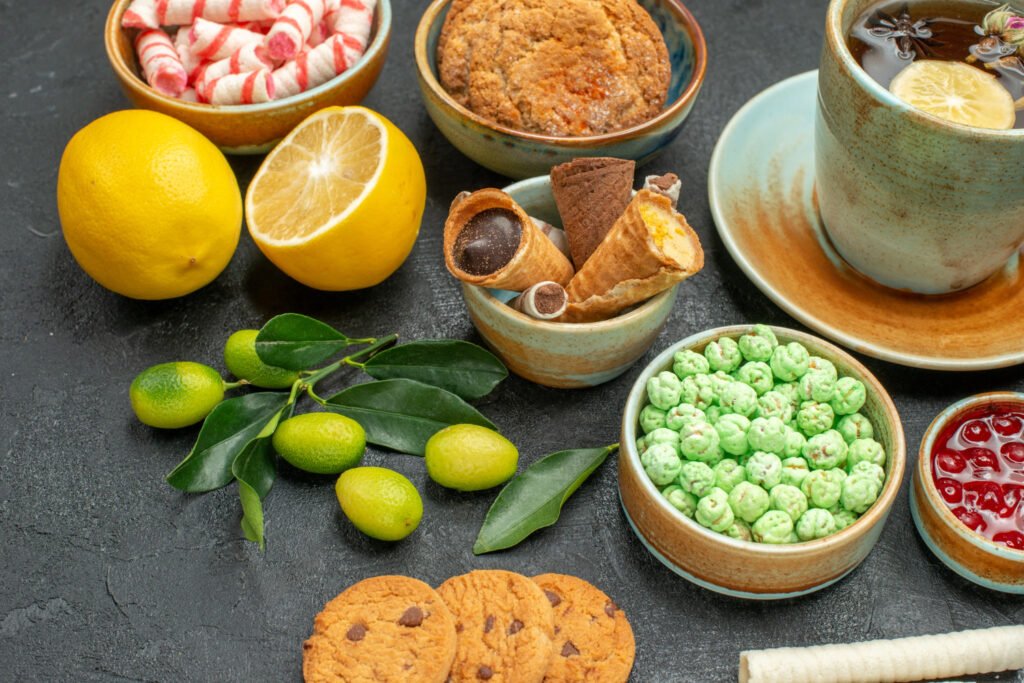
In this article
Overview
Gout, a type of inflammatory arthritis, is caused by high levels of uric acid in the blood, leading to painful joint inflammation. The condition, often characterized by sudden and severe attacks, commonly affects the big toe but can strike other joints as well. Managing gout involves more than just medication—it requires dietary changes, as certain foods can either trigger flare-ups or help prevent them. In this blog post, we’ll explore the best and worst foods for managing gout, providing insights to help you make informed dietary choices.
Understanding Gout and Its Triggers
Gout develops when the body accumulates too much uric acid, which crystallizes and deposits in the joints. Uric acid is produced when the body breaks down purines, compounds found in many foods. While the body produces purines naturally, certain foods are high in purines and can exacerbate gout symptoms. Managing your diet is key to preventing flare-ups and minimizing symptoms.
Best Foods for Gout
1. Low-Purine Vegetables
Vegetables low in purines are great for a gout-friendly diet. These include leafy greens like spinach, kale, and lettuce, as well as other vegetables such as bell peppers, tomatoes, and cucumbers. These foods are not only low in purines but also rich in vitamins and antioxidants, which help reduce inflammation.
2. Fruits Rich in Vitamin C
Vitamin C-rich fruits, such as oranges, strawberries, and kiwi, can help lower uric acid levels in the blood. Additionally, cherries have been shown to reduce the frequency of gout attacks due to their anti-inflammatory properties.
3. Whole Grains
Whole grains like oats, brown rice, and quinoa are good options for people with gout. Unlike refined grains, which can contribute to weight gain and worsen gout symptoms, whole grains provide essential nutrients and promote overall health.
4. Low-Fat Dairy Products
Research suggests that low-fat dairy products, such as skim milk and yogurt, may help lower uric acid levels and reduce the risk of gout flare-ups. These foods are rich in calcium and protein, making them a healthy addition to your diet.
5. Water and Herbal Teas
Staying hydrated is crucial for managing gout. Drinking plenty of water helps flush uric acid out of the body, reducing the risk of crystal formation. Herbal teas like green tea and dandelion tea can also have anti-inflammatory benefits and support kidney function
Worst Foods for Gout
1. Red Meat and Organ Meats
Red meats, such as beef and lamb, and organ meats, like liver and kidneys, are high in purines and can trigger gout attacks. These foods should be limited or avoided altogether if you’re prone to gout flare-ups.
2. Shellfish and Certain Fish
Certain types of seafood, including shellfish like shrimp, crab, and lobster, as well as fish like anchovies, sardines, and mackerel, are high in purines. These can increase uric acid levels and lead to painful gout symptoms.
3. Sugary Beverages and Foods
Sugary drinks like soda and fruit juices, as well as foods high in refined sugar, can contribute to gout by promoting weight gain and increasing insulin resistance. Fructose, a type of sugar found in many sweetened drinks and snacks, can elevate uric acid levels, so it’s best to limit these in your diet.
4. Alcohol, Especially Beer
Alcohol, particularly beer, is a major trigger for gout attacks. Beer is not only high in purines but also interferes with the body’s ability to eliminate uric acid. Other alcoholic beverages, such as wine and spirits, can also contribute to gout, although they may not be as problematic as beer.
5. Processed and Fried Foods
Processed foods, such as deli meats, fast food, and fried snacks, are often high in unhealthy fats, sodium, and additives that can worsen inflammation and contribute to gout flare-ups. These foods should be limited as part of a gout-friendly diet.
Tips for Managing Gout Through Diet
- Focus on a Balanced Diet: A balanced diet that emphasizes fruits, vegetables, whole grains, and lean proteins can help reduce the risk of gout flare-ups.
- Maintain a Healthy Weight: Obesity increases the risk of gout, so maintaining a healthy weight through diet and exercise is crucial.
- Monitor Portions: Even healthy foods can contribute to weight gain if eaten in large portions, so be mindful of portion sizes.
- Limit Alcohol and Sugary Drinks: Reducing or eliminating alcohol and sugary beverages can help keep uric acid levels in check.
The Takeaway
Gout can be a painful and disruptive condition, but dietary changes can make a significant difference in managing symptoms and preventing flare-ups. By focusing on low-purine foods, staying hydrated, and avoiding gout triggers like red meat, shellfish, and sugary drinks, you can help control your condition and improve your overall health. Remember to consult with your healthcare provider before making any major dietary changes, especially if you have underlying health conditions.
Making informed food choices is a powerful tool in your gout management strategy, allowing you to live a healthier, more comfortable life
A Quick Review
Gout, a painful form of arthritis, can be managed effectively by dietary choices. The best foods for gout include low-purine vegetables, vitamin C-rich fruits, whole grains, and low-fat dairy. On the other hand, red meat, shellfish, sugary drinks, and alcohol are among the worst culprits, triggering gout flare-ups. Staying hydrated and consuming a balanced diet helps control uric acid levels and prevent painful attacks.
Frequently Asked Questions
Can changing my diet help manage gout symptoms?
Yes, a low-purine diet can help reduce uric acid levels and prevent flare-ups.
What are the best foods to eat for gout?
Low-purine vegetables, fruits rich in vitamin C, whole grains, and low-fat dairy products are excellent choices.
Which foods should I avoid if I have gout?
Avoid red meat, organ meats, shellfish, sugary drinks, and alcohol, especially beer.
How much water should I drink to help with gout?
Staying hydrated is key; aim for at least 8 glasses of water daily to help flush out uric acid.
Can dairy products trigger gout attacks?
Low-fat dairy products are generally safe and can help reduce uric acid levels, unlike full-fat versions.











